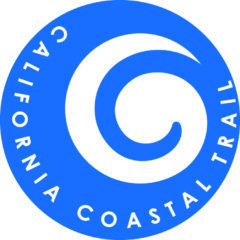Bob Lorentzen & Richard Nichols
Forty thousand people gathered in June 1979 to protest the construction of PG&E’s Diablo Canyon Nuclear power plant. Governor Jerry Brown addressed the huge crowd in a rousing speech at this largest event to question whether a nuclear plant should be allowed to operate on an earthquake fault. PG&E eventually won the war when the…
Read MoreMorro Rock rises 576 feet like a sentinel above the Coastal Trail and the mouth of Morro Bay, visible for miles on a clear day. In 1542 Cabrillo named the rock “El Moro’ (the Moor) for its dark countenance. But when Portola camped nearby in 1769, he noted the presence of”a rounded morro” (promontory) at…
Read MoreThe Hearst Corporation still owns 77,000 acres along the coast in northern San Luis Obispo County despite their donation of Hearst Castle to state parks in 1958. While the Hearsts have been praised for keeping this land in a natural state, this has not always been their intention. In the 1 960s the Hearst Corporation…
Read MoreLargest of the world’s seals, the elephant seal’s name derives from the male’s huge size, up to 22 feet long and three tons in weight, and long drooping nose, or proboscis. The females weigh up to 2000 pounds and grow to 12 feet long. By 1868 the scientific community thought the northern elephant seal was…
Read MoreIn autumn 1977 Gary Koeppel, a Big Sur gallery owner, learned that some affluent Monterey Peninsula residents led by Ansel Adams wanted to make Big Sur a national park. What irked Koeppel and the Big Sur residents he told was that the park advocates had held secret meetings with county, state and federal officials. An…
Read MoreWhile sea otters fascinate, even enchant people with their cute faces and amusing antics, they are a remarkable and extremely specialized aquatic animal. Southern sea otters inhabit the giant kelp forests growing just offshore along the California coast, while two other sea otter subspecies live in the kelp beds of southern Alaska and northeastern Asia.…
Read MoreThe California Coastal Trail provides some of the best whale watching in the state. If you hike the coast between November and May, you’ll have excellent chances to see some of the 24,000 California gray whales that swim the west coast each year. If you hike CCT in summer or autumn, you might spot humpback…
Read MoreCalifornia’s rugged 1200-mile coastline has long been renowned for the fury of its hazardous waters and the deception of its offshore reefs and rocks. Only after California entered the United States in 1850 Was any effort made to provide navigational aids. In 1854 Alcatraz Island Lighthouse in San Francisco Bay became the Golden State’s first,…
Read MoreThe last three miles of the California Coastal Trail south from the town of Imperial Beach follow the beach adjacent to the Tijuana River National Estuarine Research Reserve (TRNERR). You can’t miss the end of the journey at Border Field State Park. A huge fence made out of foot-thick pipes descends from the bluff into…
Read MoreJuan Cabrillo, a Portuguese captain sailing for Spain, entered Monterey Bay and claimed the area for Spain in 1542, just 50 years after Columbus’ maiden voyage to America. In 1602 Sebastian Vizcaino landed at Monterey, naming it for his patron, the count of Monterey. Vizcaino described a fertile land of mild climate with a “noble…
Read More